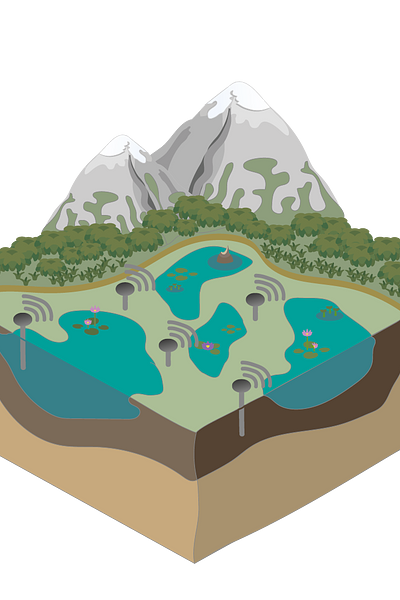Benefits of using IoT technology to combat climate change
As the UK is embarking on the path to reach Net Zero emissions by 2050, many organisations, including local and central governments, are looking at advancements in technology to help them not only to improve performance, but also reduce their carbon footprint and help manage the effects of climate change. This is where connectivity and IoT technology can play a significant role to help organisations achieve their aims.
For example, organisations can use IoT sensors throughout their office buildings to efficiently manage this space. Sensors can be used to track energy consumption, manage lighting, and monitor desk usage more efficiently. This can help reduce the company's carbon footprint and reduce the amount of energy wasted. However, there are many further examples where IoT can support carbon saving measures and help manage the wider environment from managing floods, wildfires, monitoring pollution and preserving fragile peatlands.
As a result, more industries will be looking towards IoT devices and applications as a tool to reduce their carbon footprint and their impact on the environment. This is where FarrPoint can help. We help our clients make the necessary investments to achieve these benefits, reassured by our advice on both IoT strategy and implementation
Climate Change, IoT and connectivity - FarrPoint's projects and research
By adopting a Smart Places approach, towns can expect to achieve similar benefits to those of cities, including:
- Improving the local environment, through effective waste management, and reducing pollution and carbon emissions
- Improving health social outcomes, by enhancing the quality and efficiency of local service delivery
- Growing the economy, through innovation, attracting investment and creating jobs
Why embracing Digital technology is the only solution?
With continuously improving connectivity infrastructure and the emergence of technologies such as 5G, the IoT is experiencing unprecedented growth – the worldwide number of IoT-connected devices is projected to increase to 43 billion by 2023, an almost threefold increase from 2018, according to McKinsey. This is based on the power of data generated by low-cost sensors which can provide new insights to bring new efficiencies to industry and logistics, enhancing lives both in a personal and working capacity.
FarrPoint's Smart Places and IoT services for organisations
At FarrPoint, we work with our clients to develop smart solutions that will work in the real world and solve the problems that our clients face. Get in touch to discuss how IoT technology could be incorporated into your digital strategy to improve services, reduce cost and help manage your environmental impact




